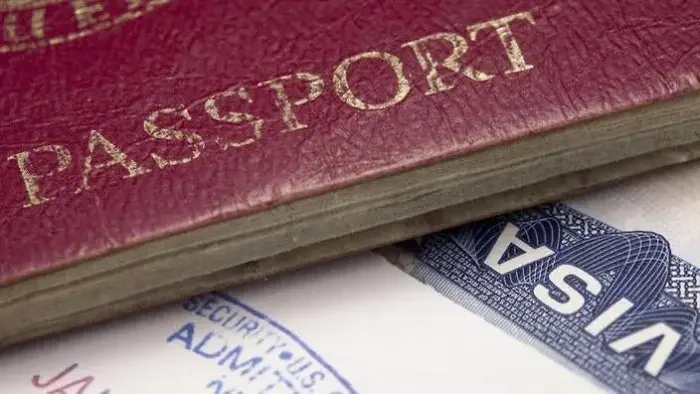If you’re aiming for a U.S. green card and you possess exceptional talent, the EB1A visa might be the perfect path for you. This visa category is reserved for individuals who have demonstrated extraordinary ability in fields like science, arts, education, business, or athletics. Unlike many other visa types, the EB1-A allows for self-petitioning, which can significantly simplify the process. Let’s dive into what the EB1-A visa is, who qualifies, and how you can apply.
What Is the EB1 Visa?
The EB1 is the first preference category for employment-based visas. It includes three main subcategories:
- EB1A: For individuals with extraordinary abilities.
- EB1B: For outstanding professors and researchers.
- EB1C: For multinational managers and executives.
In this guide, we’ll focus on the EB1-A visa, as it allows self-petitioning, meaning you don’t need a U.S. employer to sponsor your application.
Understanding the EB1A Visa
The EB1-A visa is designed for individuals who have reached the pinnacle of their career. Whether you’re a scientist, an artist, a business leader, or a top athlete, this visa can be your gateway to permanent residency in the United States. The beauty of the EB1-A is that it doesn’t require a job offer or employer sponsorship—you’re able to self-petition.

Key Benefits of the EB1A Visa
The EB1-A visa offers several advantages:
- Self-Petitioning: Unlike other employment-based visas, the EB-1A allows you to apply on your own behalf without needing an employer.
- Fast-Track to a Green Card: EB-1A applicants are considered priority workers, which means they can skip the labor certification process, speeding up the green card approval timeline.
- No Job Offer Required: Since you can self-petition, there’s no need to secure a job in the U.S. before applying.
EB1-A Visa Requirements
To qualify for an EB1A visa, you must meet specific requirements. The U.S. Citizenship and Immigration Services (USCIS) expects applicants to either:
- Provide evidence of a major international award (think Nobel Prize or Olympic Medal), or
- Satisfy at least three out of ten specific criteria set by USCIS.
The Ten Criteria for Extraordinary Ability
To qualify under the EB1A visa, you can present evidence of at least three of the following:
- smaller prizes or accolades for excellence that are recognized nationally or worldwide.
- Membership in associations that require outstanding achievement.
- published information about you in trade journals or professional journals.
- Judging the work of others either as an individual or as part of a panel.
- Original contributions in your field, which have major significance.
- writing scientific pieces for large media outlets or professional publications.
- Artistic exhibitions or showcases of your work.
- Leading or critical role in organizations with a distinguished reputation.
- High salary or significant remuneration in your field.
- Commercial success in the performing arts, as evidenced by box office sales or other achievements.
If you meet these requirements, your chances of success with the EB1A visa are significantly enhanced.

Proving You Will Work in Your Field
In addition to showing extraordinary ability, you must demonstrate that you’ll continue working in your field after entering the U.S. This can be done through contracts, job offers, or other evidence of ongoing projects within your area of expertise.
Providing a Substantial Benefit to the U.S.
Your presence in the United States must also be beneficial to the country. This is often demonstrated by showing how your work will contribute to the nation, whether through innovation, cultural impact, or economic benefits.
Filing the EB1-A Visa Application
To begin your EB1A visa application process, you need to file Form I-140, also known as the Immigrant Petition for Alien Workers. Since the EB1A allows self-petitioning, you can handle this on your own without needing an employer’s sponsorship.
EB1-A vs. EB1B vs. EB1C
While the EB1A visa is for extraordinary abilities, it’s important to understand how it differs from the other categories under the EB1 visa.
EB1B Visa: Outstanding Professors and Researchers
This visa category is for internationally recognized scholars who have at least three years of experience in teaching or research. Unlike the EB1A, EB1B applicants must have a U.S. employer ready to sponsor them. The criteria for qualifying include achievements such as major prizes, membership in exclusive academic associations, or original research contributions.
EB1C Visa: Multinational Managers and Executives
The EB1C visa is for executives or managers who are transferred from a foreign company to a related U.S. company. Unlike the EB1A, this visa requires the U.S. company to have a qualifying relationship with the foreign company, and it must provide a job offer for a managerial or executive role in the U.S.
Common Challenges in EB1-A Applications
Even if you meet the criteria, proving “extraordinary ability” isn’t always straightforward. You’ll need to provide thorough documentation, strong letters of recommendation, and robust evidence of your achievements. USCIS will compare your accomplishments to those of your peers to determine if you truly stand out.
Why Choose the EB1-A Visa?
The EB1A visa offers a unique path to permanent residency in the U.S., especially for highly accomplished individuals who may not have an immediate job offer or U.S. sponsor. It’s a great option for those who are leaders in their field and want the flexibility of self-petitio.

Conclusion
The EB1A visa is a fantastic opportunity for people with extraordinary talents to live and work in the U.S. It allows you to self-petition, meaning you don’t need an employer to sponsor you. Plus, the visa process is faster compared to other green card routes since it doesn’t require labor certification. Whether you’re a scientist, an artist, a business professional, or a top athlete, the EB1-A can be your pathway to a permanent U.S. residency.
FAQs
1. Can I apply for an EB1-A visa without a job offer?
Yes! One of the major benefits of the EB1A visa is that it allows you to self-petition, so no job offer or employer sponsorship is required.
2. How long does it take to get an EB1-A visa?
The timeline can vary, but because EB1A applicants are considered priority workers, the process is often faster than other employment-based green cards.
3. Do I need a major award to qualify for an EB1-A visa?
No, winning a major award like a Nobel Prize can help, but you can also qualify by meeting at least three of the ten criteria set by USCIS.
4. What is the application process for the EB-1A visa?
The process involves filing Form I-140, Immigrant Petition for Alien Worker, along with supporting evidence demonstrating extraordinary ability. If the applicant is in the U.S., they may concurrently file Form I-485, Application to Register Permanent Residence or Adjust Status, to adjust their status to permanent resident.
5. How long does it take to process the EB-1A visa?
Processing times can vary, but generally, the I-140 petition may take several months to process. For an extra charge, premium processing is offered, which can speed up the decision to 15 calendar days. The adjustment of status process can take additional months, depending on individual circumstances and USCIS workload.
For getting more information Thezvideo.



